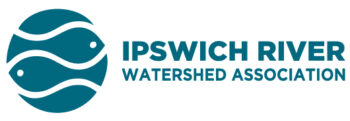Meet the American River Otter, one of the many species that calls the Ipswich River home. Ipswich River otters, like otters everywhere, have a reputation for being quite sociable, communicating with group members through scents and a variety of sounds, including low-frequency chuckling.
Did you know…?
As a river dwelling species, otters are very susceptible to ill-effects from stormwater pollution, particularly so due to a diet of fish and shellfish.
Otter numbers have been increasing statewide, particularly where there is more protected land and access to good habitat.
Otters are vulnerable to being struck by cars when moving across the landscape to new territory.
As a river dwelling species, otters are very susceptible to ill-effects from stormwater pollution, particularly so due to their diet of fish and shellfish.
Please join us this year for the 4th Annual Paddle-a-thon & Riverfest. Register today!
When the river is healthy, it’s a better environment for otters, other wildlife and people. The most fun way to support a healthy Ipswich River is Paddle-a-thon & Riverfest!
Paddle-a-thon is our biggest fundraising event of the year. Last year’s Paddle-a-thon raised $40K (net proceeds) for our beautiful river, which strengthened our RiverWatch water quality monitoring program and our efforts to protect the Ipswich River.
Otters, and many other river denizens, rely on healthy populations of keystone species like American eel and river herring.
More than just otter food, these are the original Long Haulers and two of Ipswich River’s most well-traveled, migratory species. While the American eel spends most of their lives in freshwater returning to the Sargasso Sea only to spawn, river herring spend most of their life out at sea. Each spring, Ipswich River Herring Count volunteers count the fish as they return to freshwater spawning grounds.
Did you know?
The American eel is perhaps the most common freshwater fish species, but much about it remains unknown. It is nocturnal and likely relies on its keen sense of smell to find its prey. It is also one of the few fish that can swim backwards—and quite skillfully too!
The river herring is one of the better studied fish in the Ipswich. There are about 100 separate herring runs in Massachusetts rivers, most of which have seen a decline in population in recent years. The Ipswich River once supported a massive river herring fishery. Now only a few hundred return each spring to spawn.
Paddle-a-thon & Riverfest get better each year with more sponsors, more paddlers and more funds raised. Please join us this year for the 4th Annual Paddle-a-thon & Riverfest.
Register today by card or check and help make the Ipswich River a better place for otter, eel and river herring!
How can I help?
Help the otter!
Draw awareness to stream and river crossings and improve bridges and culverts for better wildlife passage.
Reduce chemical use on lawns to prevent toxic substances entering otter habitat.
Improve stormwater infrastructure and regulations to decrease pollution in our waterways.
Conserve water to make sure there is enough clean, cool, flowing water for our otter friends!
Help herring and eel!
Track the population status by volunteering for the Herring Count.
Advocate for dam removal and upgrade of culverts that limit flow and wildlife passage.
Conserve water so water levels and temperatures stay at fish sustaining levels and temperatures.

Looking forward to exploring and paddling with the kids on June 15!!
Please let me know when new fingerling herring will be put into Hood’s pond in Topsfield. I would like to help. Arthur Towne